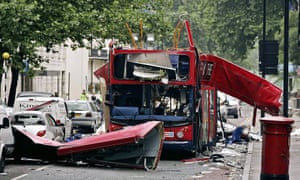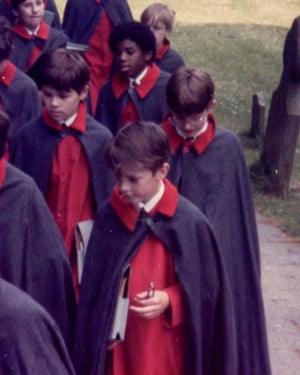I’ll never forget when it was announced that London would host the Olympics. A grey afternoon in Trafalgar Square had done little to assuage our fears that a flawless bid would hand Paris, the frontrunner, the world’s biggest sporting event. As culture minister, I was leading London’s celebrations and as the announcements came in, I watched the square erupt in colour and celebration with the news. London, the city that had raised me, had achieved the victory it deserved.
The buoyancy of the day before carried me through to the next morning. But it subsided as I was sitting in a car on the way to parliament and heard that there had been a power surge on the tube. Like many other Londoners that day, I couldn’t figure out what that actually meant, or why I had no signal on my phone.
As the rumours dissipated, it became clear that there had been a major terrorist attack. Parliament was eerily quiet as images of the July bombings started flooding on to the TVs: a red bus splayed on to the street with its insides hanging out, Russell Square, home to my old university, crowded with ambulances for the injured.
Less than 24 hours had turned London’s joy and hope into despair. Immediately, along with the rest of the city, I rang loved ones and colleagues to check that they were all right. An intern in our office had been on one of the lines that was affected, but we had managed to get hold of her after a few tries.

As London’s shock turned slowly into grief, I began to feel a deep unease that sat with me through the night. I woke up the next day to hear that my friend James Adams had been a passenger on a train from King’s Cross, and was one of the 56 people missing. I knew at once that the feeling had been for him.
James had been my closest friend during my early years at a state cathedral boarding school in Peterborough. It was a natural alliance: I was the only black boy in school and he had a crippling stammer. We had sung together in the choir, and shared a bunkbed. We had stayed friends after secondary school, as I traced my way from Tottenham to Westminster, and he from Peterborough to London.

As an MP, there have been few moments when my personal and political life have been indistinguishable. James’s passing meant that what had been grief for all Londoners as a representative in parliament, suddenly became a personal reality. I think of James often, and miss him greatly. With his passing, a moody fog descended that didn’t lift for several years.
A London united by celebration had become a city united by grief. The scenes of jubilation I had witnessed in Trafalgar Square couldn’t have been more different from the despair that hit Tavistock Square the following morning. Yet throughout it all, the spirit of London endured. In these two days of summer, days of loss and hope, I saw the best of my city – its unity, its tolerance of difference and its resilience in the face of terrible adversity.